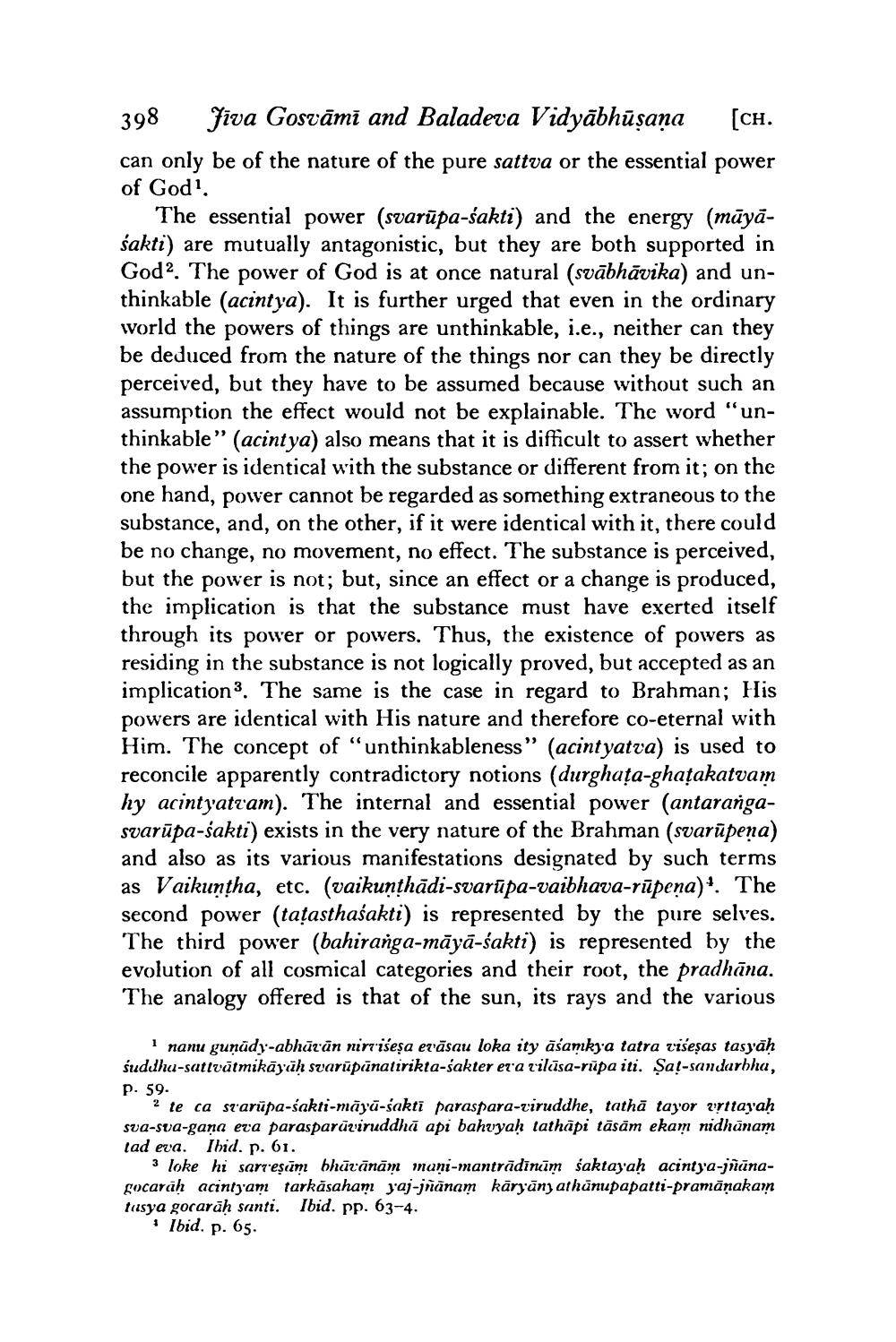________________
398 Jiva Gostāmi and Baladeva Vidyābhūsaņa [ch. can only be of the nature of the pure sattva or the essential power of God.
The essential power (svarūpa-sakti) and the energy (māyāśakti) are mutually antagonistic, but they are both supported in God?. The power of God is at once natural (svābhāvika) and unthinkable (acintya). It is further urged that even in the ordinary world the powers of things are unthinkable, i.e., neither can they be deduced from the nature of the things nor can they be directly perceived, but they have to be assumed because without such an assumption the effect would not be explainable. The word "unthinkable" (acintya) also means that it is difficult to assert whether the power is identical with the substance or different from it; on the one hand, power cannot be regarded as something extraneous to the substance, and, on the other, if it were identical with it, there could be no change, no movement, no effect. The substance is perceived, but the power is not; but, since an effect or a change is produced, the implication is that the substance must have exerted itself through its power or powers. Thus, the existence of powers as residing in the substance is not logically proved, but accepted as an implication. The same is the case in regard to Brahman; His powers are identical with His nature and therefore co-eternal with Him. The concept of "unthinkableness" (acintyatva) is used to reconcile apparently contradictory notions (durghața-ghațakatvam hy acintyatram). The internal and essential power (antarangasvarūpa-sakti) exists in the very nature of the Brahman (svarūpena) and also as its various manifestations designated by such terms as Vaikuntha, etc. (vaikunthādi-svarūpa-vaibhava-rūpena)" The second power (tațasthasakti) is represented by the pure selves. The third power (bahiranga-māyā-sakti) is represented by the evolution of all cosmical categories and their root, the pradhāna. The analogy offered is that of the sun, its rays and the various
i nanu gunādy-abhūrān nirriseşa etāsau loka ity āśamkya tatra riseșas tasyāḥ śuddhu-sattvātmikāyuh svarūpūnatirikta-sakter era rilāsa-rūpa iti. Şal-sandarbha, P. 59.
2 te ca starūpa-sakti-māyā-sakti paraspara-viruddhe, tathā tayor yrttayah sua-sua-gana eta parasparūviruddhā api bahuyah lathāpi tāsām ekam nidhānam lad eva. Ibid. p. 61.
3 loke hi sarresām bhūrānām mani-mantrādinām saktayah acinty'a-jñānagocarah acintyram tarkasaham yaj-jnanam kāryāni athānupapatti-pramānakan tusya gocarāh santi. Ibid. pp. 63-4.
• Ibid. p. 65.




